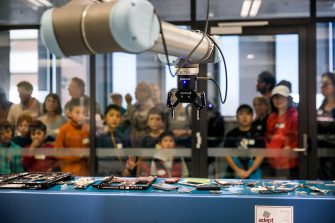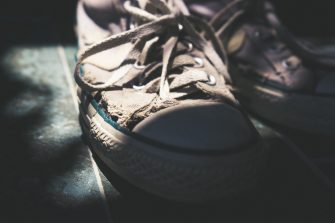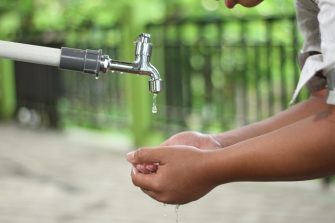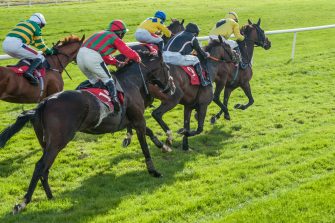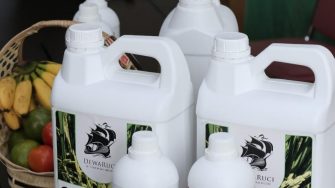
"Our dream is to take this waste product from the seafood industry, process it into a completely safe chitosan preservative, which can then be used by the food industry right across Indonesia and potentially the world."
- Science Adjunct Lecturer Alex Soeriyadi
Partners & collaborators
- University Gadjah Mada (A/Prof. Wiratni, Dr Ronny Martien, Dr Prihati Sih Nugraheni)
- Dewaruci
- Foodlab Indonesia
Research summary
UNSW research has helped commercialise a 100% biodegradable, natural chitosan product that preserves food for longer, reduces food waste and increases the income of smallholder farmers.
Indonesia is made up of over 18,000 islands with fragmented infrastructure. Many smallholder farmers cannot afford refrigeration equipment, so even though they harvest excellent quality produce, it’s often hard to transport it to consumers while still fresh. Indonesia is the world’s second largest food waster at 300 kg/person/year, largely because the food can’t reach consumers due to the complex and protracted supply chain.
UNSW Science Adjunct Lecturer Alex Soeriyadi was born in Indonesia but spent much of his adult life in Australia. He says he often wondered why fruit and vegetables in Australia were superior in quality to those in Indonesia. This thought played in the back of his mind until he heard about innovative food preservative research using chitosan being undertaken at University Gadjah Mada, in the Indonesian city of Yogyakarta.
Looking into their research further, he became convinced that this was a promising way for Indonesia to better preserve fresh produce, reduce food waste, increase food safety, improve food security and increase the incomes of disadvantaged farmers.
“Thanks to a $10,000 grant, awarded as part of the UNSW-Indonesia Seed Funding initiative, I started collaborating with colleagues from University Gadjah Mada in 2017. Since then we have established a start-up in Indonesia called Dewaruci and created a product that has the potential to completely revolutionise how food is preserved in Indonesia,” he says.
According to Soeriyadi, chitosan is completely safe to consume, has anti-microbial and anti-oxidant qualities, and, as an additional bonus, chitosan is made from crustacean waste, a by-product of the seafood industry.
“Around 60,000 tonnes of crustacean shells are generated annually in Indonesia. The shells are cheap (around $150 per tonne) and contain 20–40% protein, 20–50% calcium carbonate and 15–40% chitin. The chitin, the second most abundant natural biopolymer on earth after cellulose, can be transformed into chitosan,” Soeriyadi continues.
In laboratory tests, the research team turned chitosan powder into a solution that can be applied onto fresh fruit, vegetables and fish, conserving it in a film-like substance. For example, tests show the solution extends the life of fish to 12 days, compared to around six days using artificial preservatives and 0.6 days for fish without preservatives. Trials on fresh fruits such as banana, strawberry and orange have also shown promising results, with a doubling of shelf-life.
Using chitosan as a way to preserve food opens up new opportunities for shellfish waste collection and transportation industries too. This will increase the income of crustacean farmers and provide work and income for small operators involved in the supply chain.
“Dewaruci’s product is suitable for use by fishermen, small producers of fruit, vegetables and processed foods, and even large food manufacturers, who will all be able to demand higher prices from the supply chain,” says Soeriyadi.
“It can be sprayed on, mixed in, or used to dip the produce in and we are currently in the process of commercialising it for the mass market.”
Soeriyadi says the next steps are to continue to reach out to potential customers and to get the product certified by food safety organisations so Dewaruci can start manufacturing it on a larger scale.
“Our dream is to take this waste product and process it into a completely safe preservative, which can then be used by the food industry right across Indonesia, and potentially the world,” he says.

